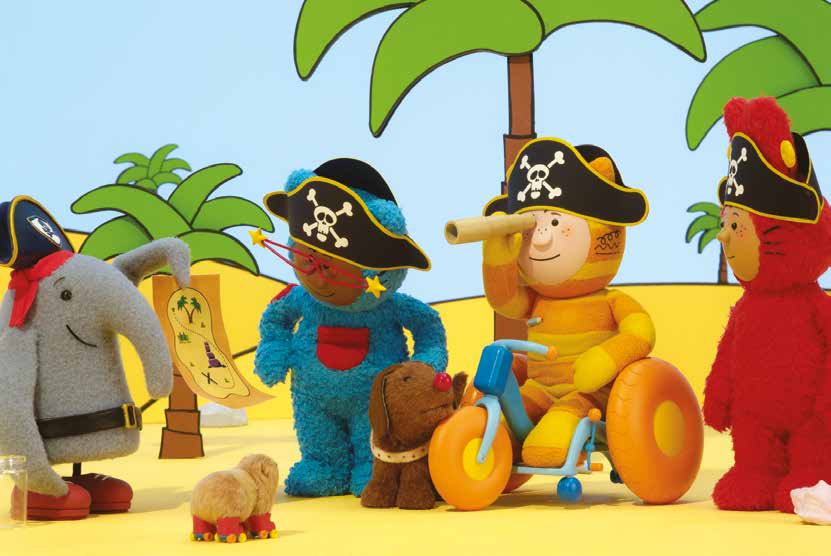How teachers can make Christmas more inclusive

It’s beginning to look a lot like Christmas, but the holidays can be a challenging time of year for children and young people who are deafblind.
This article talks about how teachers can make Christmas more inclusive for students who have a sight and/or hearing impairment. If you’d like to find out more about how to make your school more accessible, please visit our education page.
Use Christmas decorations that appeal to all the senses
Christmas decorations are great fun, and they can really help to put everyone in the festive spirit. If your school puts up Christmas decorations, have you thought about how children who rely more on touch or smell might enjoy them?
Young people who are deafblind might find it harder to enjoy the visual aspects of decorations, like the dazzle of tinsel or baubles in a Christmas tree. Big displays, especially those with flashing lights, can also be overwhelming.
Here are some tips to help all your students enjoy the decorations:
- Use a real Christmas tree if possible – the smell is lovely and instantly recognisable as something Christmassy!
- Only use decorations that are safe to touch, and don’t tell students off for doing so! This could be things like baubles with different textures (such as glitter or raised patterns) or shaped decorations
- If the children will make their own decorations, include a variety of textures they can use to make their designs. Older children can create scented Christmas ornaments – festive spices and dried oranges are perfect for this.
Small changes can have a big difference
If you’re a teacher organising the nativity play or school fair this Christmas, consider how all the children will experience these events. Background noise and visual clutter can be overwhelming for children who have sight and hearing impairments, so it’s important to think about their needs and make sure they’re included.
Examples of situations that can be more challenging for children who are deafblind include:
- Listening for long periods of time during a play
- Navigating a busy school fair with a cane or assistance dog
- Seeing Christmas decorations around the school.
Small changes can make school events more accessible and inclusive. This could be something simple, like clearing away clutter in the school hall. If you’re organising a play, ask the child or their parents if there is anything that could make their experience better. For example, children who are deafblind might prefer to be nearer the front so that they can see a parent or interpreter.
Include different methods of communication in Christmas activities
Christmas is a time to socialise, and the festive fun brings us all together. Teachers can use the festivities as an opportunity to teach students about different ways of communicating. Some easy ways you can explore different methods of communication in the classroom include:
- Teach your students how to sign the lyrics of a favourite hymn or carol using British Sign Language (BSL)
- If your class is exchanging gifts or doing a secret Santa, ask your students to write a visual description of their gift and include this on the gift tag
- Introduce your students to tactile communication by teaching them how to write a Christmas card in Braille.
Let’s keep in touch!
Join our mailing list and we will keep you up to date about our projects and opportunities to get involved with Deafblind UK.
More Articles

Navigating communication challenges in healthcare
Going into the hospital for any amount of time can be a scary prospect, whether it’s a pre-planned appointment or…

Accessible TV and streaming services
Online streaming services have become increasingly popular in recent years, but just how accessible are they for people with sight…

The Magic of Mixmups
Mixmups is the brand new pre-school TV series, designed to introduce disability and diversity from an early age. The stop-motion…
